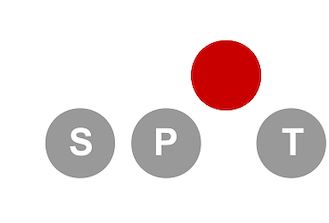2022 IEEE World Congress on Computational Intelligence (WCCI)/ IEEE Congress on Evolutionary Computation (CEC)
18 – 23 July 2022, Padova, Italy
Evolutionary computation includes a group of nature-inspired population-based techniques, which have been successfully applied to many complex learning and optimisation problems, such as classification, clustering, vehicle routing, job shop scheduling, and face recognition. Most evolutionary learning and optimisation methods discard knowledge gained while solving one problem. When given a new problem, an evolutionary learning or optimization method will start from scratch, regardless how similar the new problem is to the already addressed problems. However, many real-world problems are closely related, so experience or knowledge learnt from solving one problem could very helpful when solving another problem, such as knowledge learnt from texture image classification can be helpful for brain tumor detection using MRI images. In machine learning, transfer learning aims to transfer knowledge acquired in one problem domain, i.e. the source domain, onto another domain, i.e. the target domain. Transfer learning is now hot topic in data mining and machine learning, which has attracted increasing attention from many disciplines. In recent years, there is a growing interest in utilizing transfer knowledge in evolutionary computation to address challenging learning and optimisation tasks.
Aim and Scope:
The theme of this special session is evolutionary transfer learning and transfer optimisation , covering ALL different evolutionary computation paradigms, including Genetic algorithms (GAs), Genetic programming (GP), Evolutionary programming (EP), Evolution strategies (ES), Learning classifier systems (LCS), Particle swarm optimization (PSO), Ant colony optimization (ACO), Differential evolution (DE), Evolutionary Multi-objective optimization (EMO) and Memetic computing (MC).
The aim is to investigate in both the new theories and methods on knowledge transfer can be achieved with different evolutionary computation paradigms, and the applications of evolutionary transfer learning and transfer optimisation in real-world problems.
Authors are invited to submit their original and unpublished work to this special session. Topics of interest include but are not limited to:
- Evolutionary supervised, unsupervised, and semi-supervised transfer learning
- Evolutionary deep transfer learning, such as evolving deep neural networks
- Domain adaptation and domain generalisation in evolutionary computation
- Instance based transfer approaches in evolutionary computation
- Feature based transfer learning in evolutionary computation
- Parameter/model based transfer learning in evolutionary computation
- Relational based transfer learning in evolutionary computation
- Evolutionary multi-task learning and evolutionary multi-task optimisation
- Evolutionary transfer learning for various data mining tasks, such as classification, clustering, regression, association rules and link analysis
- Evolutionary transfer optimisation for multi- and many-objective optimization
- Evolutionary transfer optimisation for Evolutionary transfer optimization for multi-task optimization
- Evolutionary transfer optimisation for solving complex optimisation problems, such as combinatorial optimisation, expensive optimisation, multi-modal optimisation
- Hybridisation of evolutionary computation and neural networks, and fuzzy systems for transfer learning and transfer optimisation
- Hybridisation of evolutionary computation and machine learning, information theory, statistics, etc., for transfer learning and transfer optimisation
- Theoretical studies on the behaviours of evolutionary transfer learning and optimisation
- Real-world applications of evolutionary transfer learning and transfer optimisation
This special session is supported by IEEE CIS Task Force on Transfer Learning & Transfer Optimization from ISATC, and IEEE CIS Task Force on Evolutionary Computation for Feature Selection and Construction from ECTC.
Important dates:
- Deadline for submission of full papers: 31 January 2022 (11:59 PM AoE) STRICT DEADLINE
- Notification of acceptance: 26 April 2022
- Final Paper Submission Deadline: 23 May 2022
- Conference dates: 18 – 23 July 2022
More: https://homepages.ecs.vuw.ac.nz/~xuebing/CallforPapers/cec2022ETLTO.html

